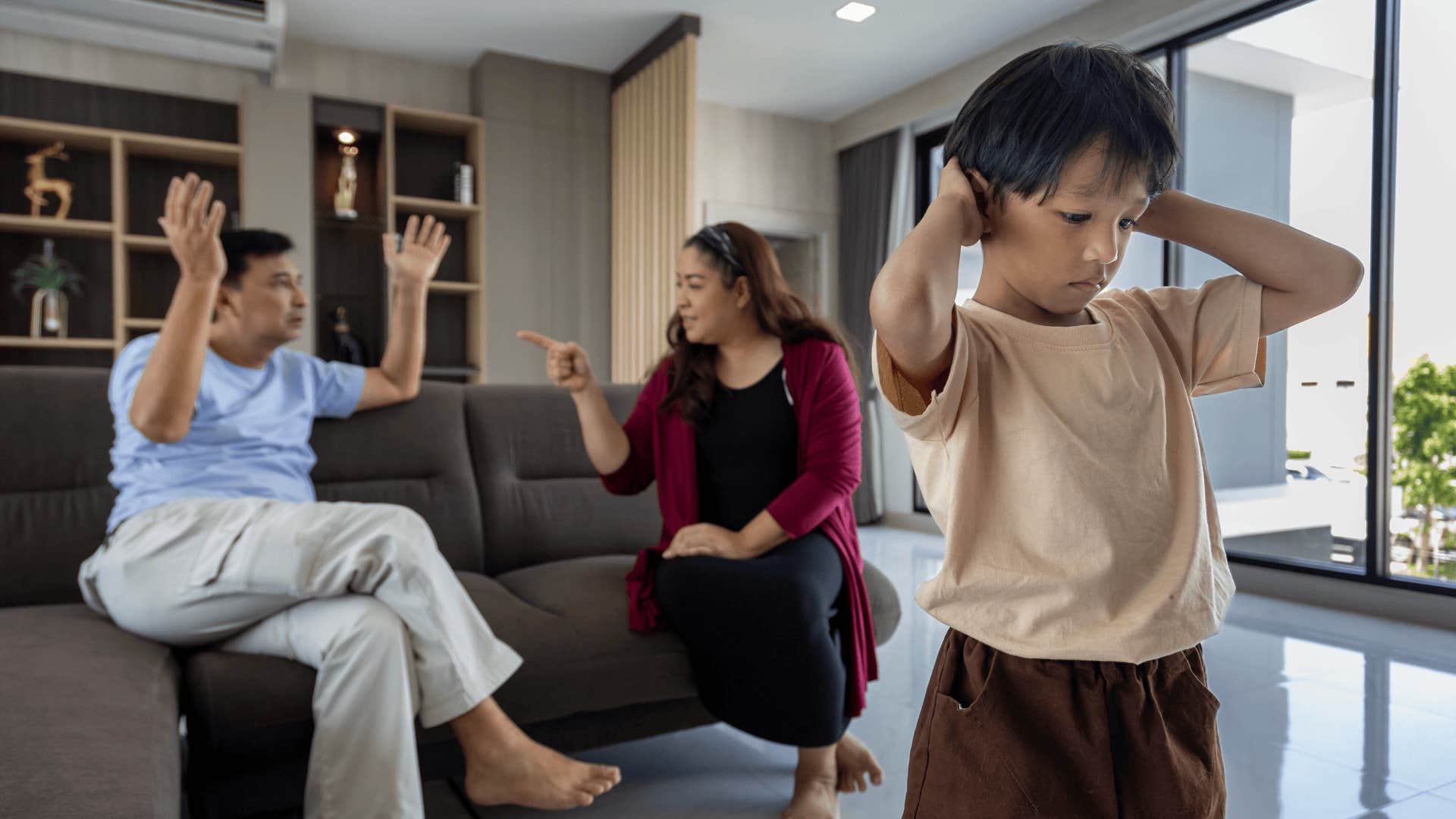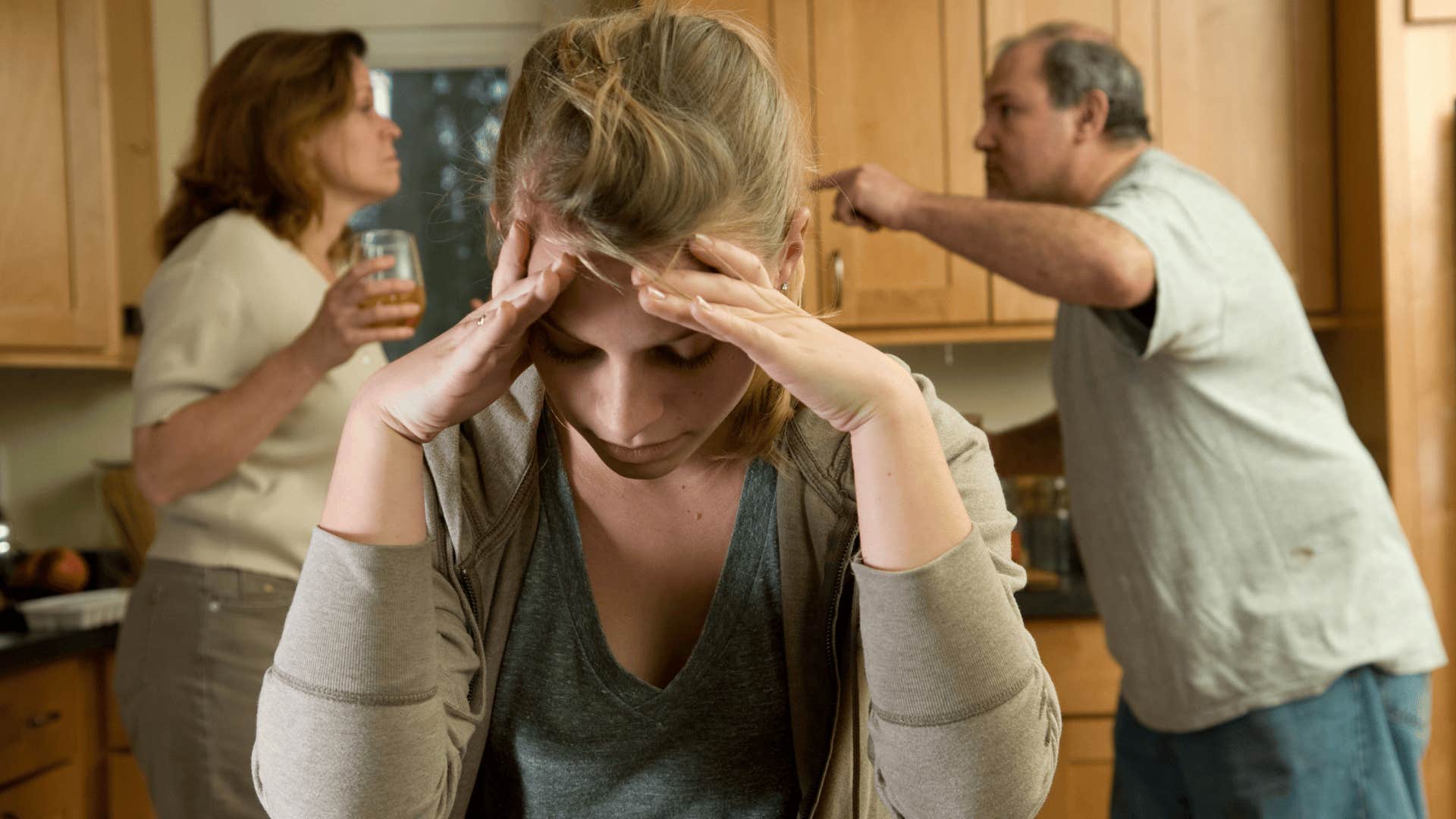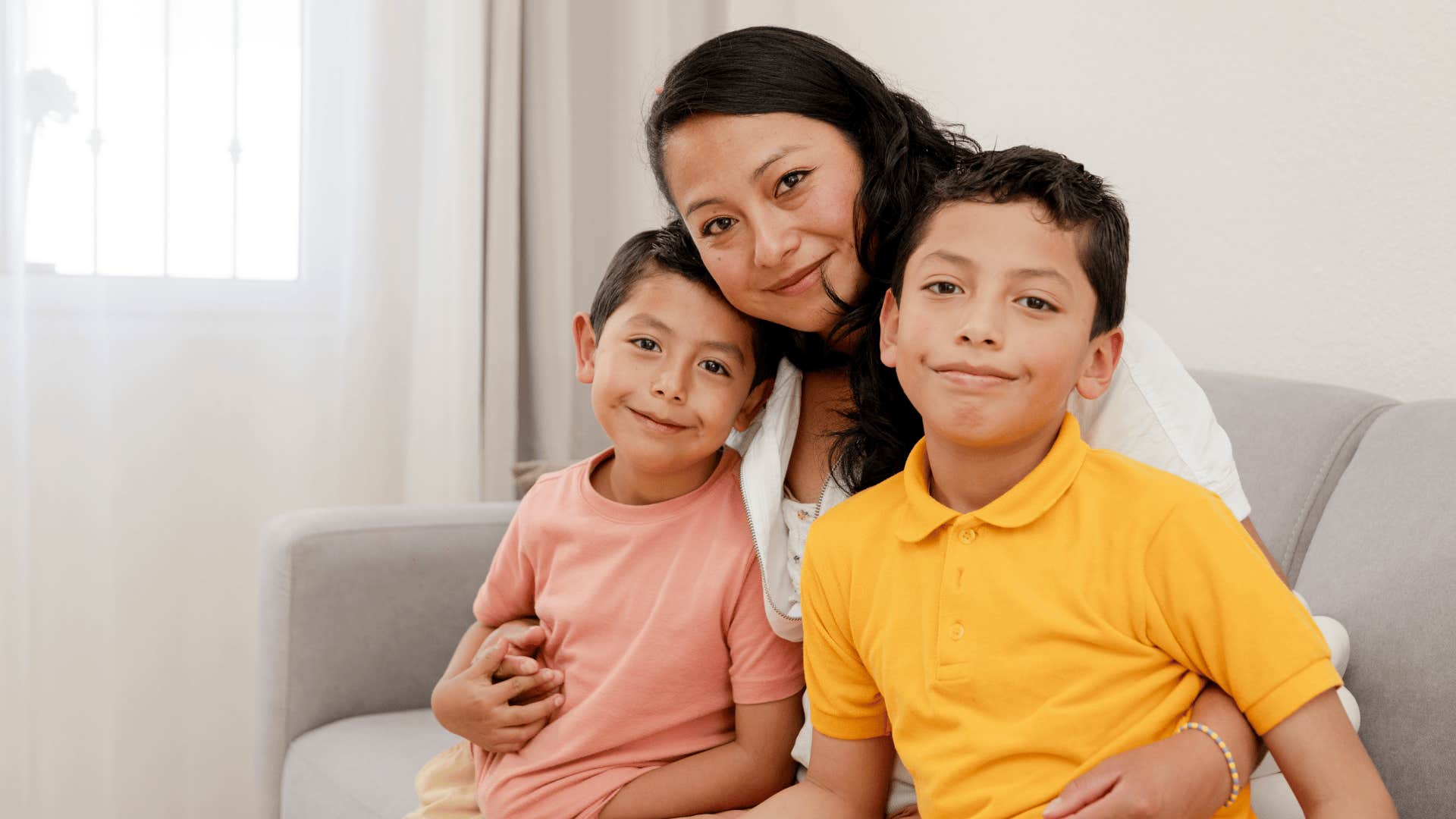If These 7 Things Happened In Your Childhood, Emotional Chaos Might Feel Normal
Your past doesn’t stay in the past, especially when it comes to love.
 Africa images | Canva
Africa images | Canva Whatever your relationship patterns, good or bad, everyone has them. The tricky part is that most of our patterns are out of our control, so even my most seemingly aware clients fall into these traps. The majority of our patterning operates on family dynamics that have nothing to do with us. Yes, you heard me correctly: you could blame Mom and Dad and your dysfunctional family for your dating struggles.
You see, we navigate life partly from our own experiences, but largely from the experiences of our parents, aunts/uncles, siblings, and grandparents before us. We are "pulled" to follow them and their fates, and additionally, we repeat a lot of what they did out of love and loyalty. Dozens and dozens of family dynamics can affect you romantically, and we've outlined seven of them for you, as well as relationship advice, to move past them.
If these things happened in your childhood, emotional chaos might feel normal:
1. Your mom and dad got divorced
 Akarawut / Shutterstock
Akarawut / Shutterstock
Obviously, this dynamic sets you up for a split in a way that children of parents who stayed together don't. Additionally, when our parents' divorce, we often consciously ally with one parent and subconsciously ally with the other, creating a messy cocktail of entanglements that leave very little room for our own romance.
2. Your mom or dad had an ex-spouse before each other, and it didn't end well
 Rawpixel.com / Shutterstock
Rawpixel.com / Shutterstock
Energetically, we can feel guilty towards an ex-spouse of a parent who was not treated fairly, especially if there were children involved from that marriage, and overly identify ourselves in that situation.
While parental divorce and high-conflict separations are indeed associated with increased mental health challenges and behavioral difficulties in children, it's not automatically a sign of a dysfunctional family. A 2022 study found that while parental divorce can create significant stress and disrupt family dynamics, the experience itself doesn't inherently make a family dysfunctional.
3. Your mom or dad had true love before each other that never came to fruition
 threerocksimages / Shutterstock
threerocksimages / Shutterstock
If your parents had a true love that never made it off the ground, we erroneously think, "Who are we to have that?" Additionally, we can identify with the ex-lover and make for an interesting dynamic with our parents that is not very romance-friendly.
4. Your mom or dad is now single (or your sibling, friends, and other relatives)
 Fernanda_Reyes / Shutterstock
Fernanda_Reyes / Shutterstock
We desperately want to belong to a tribe. If they are single, what the heck are they going to think of us if we find true love? Will they accept us? Will they kick us out of the tribe? Will we feel guilty for having a warm and fuzzy relationship when they cannot?
Dysfunctional families can create unhealthy relational patterns that impact an individual's ability to form healthy relationships later in life. Some signs of a dysfunctional family include poor communication, emotional neglect, lack of empathy, rigid roles, and control issues.
However, a 2014 study explained that it's essential to recognize that other factors influence relationship status. For instance, individual preferences, societal pressures, and personal experiences can affect whether someone chooses to be single or in a relationship.
5. You have a sibling or relative that died young and tragically
 DimaBerlin / Shutterstock
DimaBerlin / Shutterstock
We tend not to want to surpass our parents and our siblings. If a sibling was denied the ability to get married (for whatever reason), we will often shy away from having what they did not have the opportunity to have.
6. Your mom did not respect your dad or vice-versa
 Yuri A / Shutterstock
Yuri A / Shutterstock
We learn from our same-gender parents how to turn fully into a partner. If it was not shown at home, it is hard to replicate that. Research indicates that a lack of respect between parents can significantly indicate a dysfunctional family dynamic.
This lack of respect can manifest in various ways, including verbal abuse, criticism, disrespect, or an overall lack of emotional connection between parents. When parents struggle to respect each other, it can create a hostile and unstable environment for children, impacting their emotional and psychological development.
7. Your mom or dad relied way too much on you to be their best friend or confidant
 AstroStar / Shutterstock
AstroStar / Shutterstock
When you are your mom's gal pal or your dad's therapist, you are overstepping boundaries that leave very little space for your partner to come in.
Time to just be your parents' child so you can have space for your own romantic life. Don't let a dysfunctional family and the family dynamics of the past affect your current life and future.
We honor our family members when we can disentangle ourselves from their patterns, stop following them in that way, and live a life that is richer, fuller, and more fulfilled. And that means having a loving relationship.
Natalie Berthold is a Health and Wellness Coach, Facilitator of healing, Teacher, Family Constellation Therapist, and Reiki Master.

